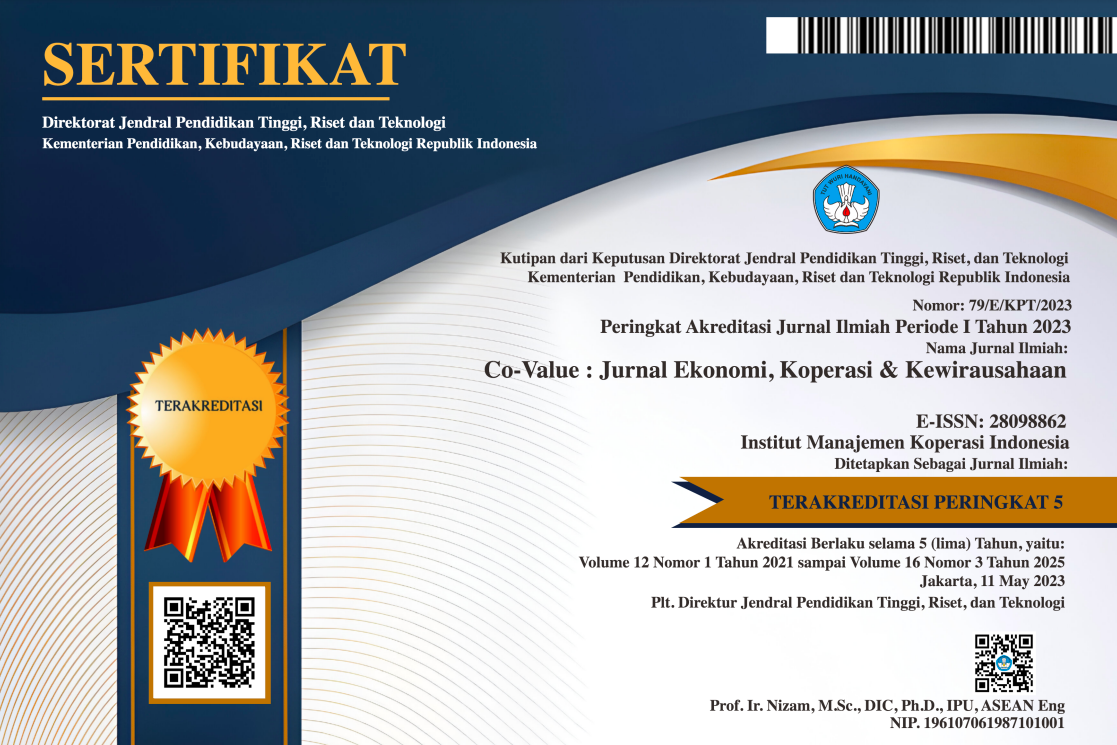Digital Entrepreneurship Intention on University Student using Theory of Planned Behavior
DOI:
https://doi.org/10.59188/covalue.v14i5.3875Keywords:
Digital entrepreneurship, Student, Entrepreneurial intentionAbstract
This research aims to identify factors that influence students' intentions to undertake digital entrepreneurship. The research method used is a quantitative research method, with an instrument in the form of a questionnaire using a 5-point Likert scale measurement. The instrument used consists of 15 question items consisting of the theory of Planned Behavior (9 items), digital entrepreneurial intention (3 items), and entrepreneurial behaviour (3 items). The questionnaire in a Google form was distributed via social media such as Facebook, TikTok and Instagram. There were a total of 376 students who answered the questionnaire. The data obtained was processed with the help of SPSS 27 software and then analyzed using descriptive and inferential statistics. The results show that attitude, subjective norms, and perceived behavioural control are average. Furthermore, there is a significant and simultaneous influence between attitude, subjective norms, and perceived behavioural control on digital entrepreneurship intention, 52%.






